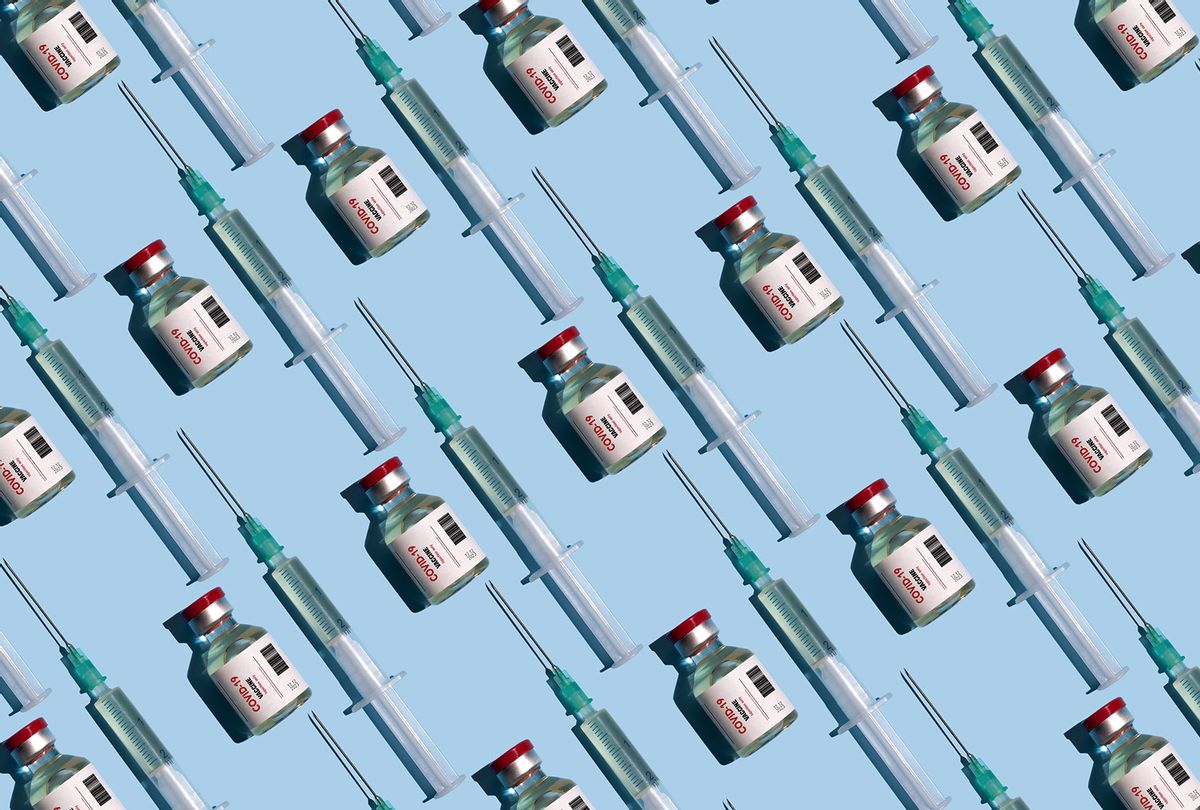Scientists working on a vaccine for a specific virus that affects pigs may have inadvertently created a prototype for a universal coronavirus vaccine — one that protects against all coronaviruses, including SARS-CoV-2 and, theoretically, its mutations. Such a vaccine would be a boon in fighting the ever-mutating SARS-CoV-2 virus, for which some subsequent mutations have been discovered to be more resistant to the existing approved vaccines.
Specifically, the researchers attempting to address porcine epidemic diarrhea virus (PEDV) believe they may have developed a way to someday create a universal vaccine against all coronaviruses, from SARS-CoV-2 (which causes COVID-19) to those responsible for certain types of the common cold. PEDV is also a type of coronavirus, the broad class of related RNA viruses that resemble a spherical, pointy star and whose members also include SARS-CoV-2 (the "novel coronavirus"), SARS and MERS.
The theoretical vaccines, developed by the University of Virginia's Steven L. Zeichner, and Virginia Tech's Xiang-Jin Meng, could offer many advantages over existing vaccines. In addition to potentially protecting patients from all kind of coronaviruses, researchers claim that the vaccines would be cheap, easy to mass produce and likewise easy to transport and store. Perhaps most importantly, the vaccine yielded promising results in early animal testing.
Salon spoke with Zeichner by email, who emphasized that researchers have not yet experimented to determine whether the PEDV vaccine can protect against people against SARS-CoV-2. He also noted that the early vaccine trials with pigs did not cause what virologists refer to as "sterilizing immunity," or "raise antibodies in the blood of the pigs that could completely kill the virus," but that they were able to protect our porcine friends against clinical disease caused by PEDV. Pigs that received a control vaccine still got sick, while those which received either the SARS-CoV-2 vaccine or the PEDV one developed by the researchers either did not get sick at all or only got slightly sick.
"This was really just a first try, with some pretty arbitrarily chosen experimental parameters," Zeichner explained. "We are working hard now to try to improve the immune responses, by testing different doses, dose schedules, routes of administration, and adjuvants to promote a better immune response. We think that with a few tweaks we should get better responses."
One reason Zeichner and his team are hopeful about the possible broader uses of their vaccine is that it works by attacking a part of a coronavirus' spike protein (the protein which causes those little needles to stick out from its sphere, like the spines on a sea urchin) known as the "viral fusion peptide." A fusion peptide is essentially universal among all coronaviruses.
"We target the fusion peptide, not the entire spike protein or the receptor binding domain," Zeichner pointed out.
While fusion peptides could hypothetically mutate and allow coronaviruses to evade vaccines, Zeichner claimed this had not been observed to date, adding that "all the SARS-CoV-2 sequenced to date share the same core fusion peptide sequence exactly, and every sequenced coronavirus has an identical 6 amino acid fusion peptide core." This means that even coronaviruses which are only distantly related — as is the case for PEDV and SARS-CoV-2 — could be vulnerable to inoculations that focus on fusion peptides, as they share the same 13 amino acid fusion peptide core sequence.
Finally, he added that because the researchers demonstrated that the SARS-CoV-2 fusion peptide vaccine can protect pigs against disease they might develop after being infected with PEDV, their vaccine platform could alleviate concerns about another COVID-19 outbreak being caused by mutant strains. A number of variants are already in the United States, with a public health official from President Joe Biden's administration admitting that she is concerned about a possible surge in cases for that reason.
"There would be a suggestion that since the SARS-CoV-2 fusion peptide vaccine protected against clinical disease in the pigs caused by PEDV, that the SARS-CoV-2 fusion peptide vaccine would also be able to protect people against a very wide range of SARS-CoV-2 variants, which are becoming of increasing concern," Zeichner observed. "This is what we meant when we wrote the fusion peptide vaccine would likely be 'evolution resistant.' Because of the broad cross protection, a further implication might be that a fusion peptide vaccine might be able to protect against many different coronaviruses."
Want more health and science stories in your inbox? Subscribe to Salon's weekly newsletter The Vulgar Scientist.
Salon reached out to several experts regarding their thoughts on the new vaccine.
"An interesting approach that remains to be tested in clinical trials," Dr. Carlos del Rio, Distinguished Professor of Medicine at Emory University School of Medicine, told Salon by email.
Dr. Irwin Redlener, leader of Columbia University's Pandemic Response Initiative, thought that the results were promising.
"The technology they cited is legitimate and there is genuine promise in what has been reported," Redlener told Salon by email. But he cautioned the need for subsequent studies and more science, saying that "thorough evaluation of the scientific methodology and conclusions must be done by credible, independent peers and meet the rigorous standards of appropriate journals."
He added, "Yes we're in a major pandemic crisis, but rushing to judgement without adhering to appropriate evaluation of studies is asking for trouble. That said, am I excited about the possibilities suggested by the press release? Of course. But I am withholding any kind of final judgement."
Dr. William Haseltine, founder and former CEO of Human Genome Sciences and currently the chair and president of the global health think tank Access Health International, wrote to Salon that "this is not materially different from a number of efforts to produce peptide (small protein vaccines) in bacteria, yeast or other cell systems," some of which are in more advanced clinical trial stages. When asked if he felt that the new vaccine platform could help scientists fight mutant strains of SARS-CoV-2 and other coronaviruses, he replied: "Possible but definitely not guaranteed."



Shares